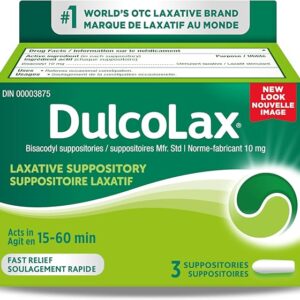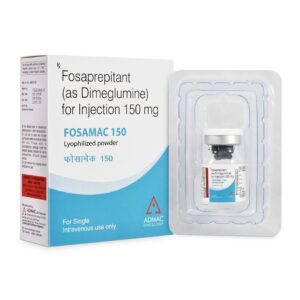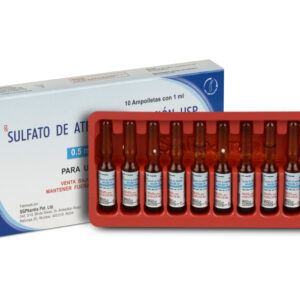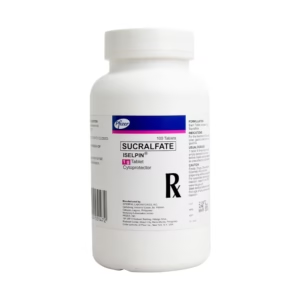-
Bisacodyl
Bisacodyl is a stimulant laxative used to treat constipation and prepare the bowel for medical procedures.
Applications:
-
Relieves occasional constipation.
-
Used for bowel cleansing before colonoscopy or surgery.
Side Effects:
-
Common: abdominal cramps, diarrhea, nausea.
-
Serious (rare): electrolyte imbalance, dehydration with prolonged use.
Br120.00

Bisacodyl
Br120.00 Select options This product has multiple variants. The options may be chosen on the product page -
-
Fosaprepitant
Fosaprepitant is an antiemetic used to prevent nausea and vomiting caused by chemotherapy.
Applications:
-
Prevents acute and delayed nausea/vomiting from highly emetogenic chemotherapy.
-
Often used in combination with other antiemetics (like dexamethasone and a 5-HT3 antagonist).
Side Effects:
-
Common: fatigue, headache, hiccups, and constipation.
-
Serious (rare): infusion site reactions, allergic reactions, liver enzyme elevation.
Brands: Emend (IV).
Br120.00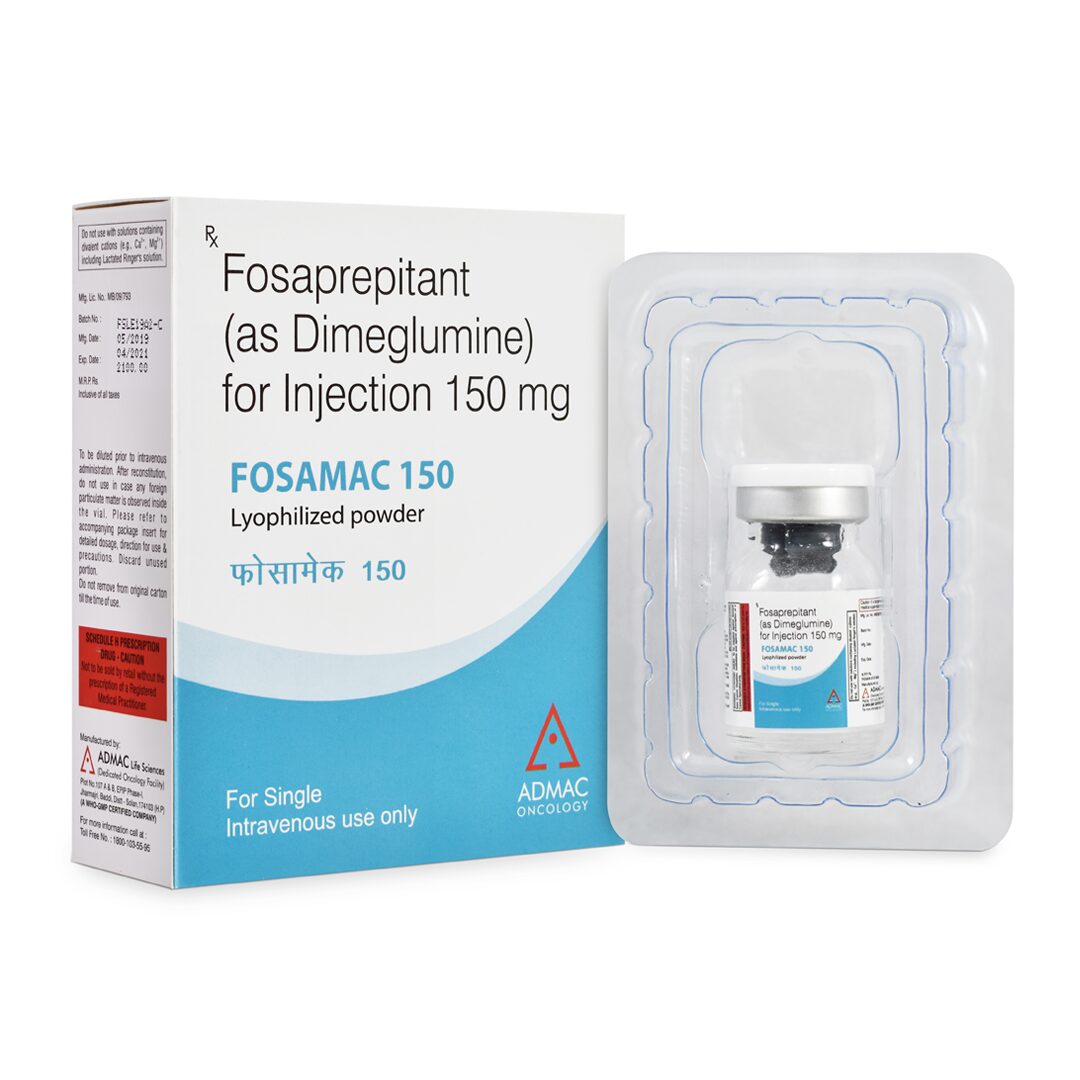
Fosaprepitant
Br120.00 Select options This product has multiple variants. The options may be chosen on the product page -
-
Aprepitant
Applications:
Chemotherapy-Induced Nausea/Vomiting (CINV): Prevents acute/delayed nausea from highly emetogenic chemo (e.g., cisplatin).
Moderately Emetogenic Chemo: Used with dexamethasone + 5-HT3 blockers (e.g., ondansetron).
Postoperative Nausea/Vomiting (PONV): Alternative for high-risk surgeries (less common).Side Effects:
Common: Fatigue, hiccups, constipation, headache, loss of appetite.
Serious (Rare):-
Liver toxicity (elevated LFTs).
-
Hypersensitivity (rash, anaphylaxis).
-
Drug interactions (CYP3A4 inhibitor—affects warfarin, birth control, some chemo drugs).
Note: Avoid with pimozide (QT prolongation risk). IV form (fosaprepitant) available.
Br120.00
Aprepitant
Br120.00 Select options This product has multiple variants. The options may be chosen on the product page -
-
Atropine Sulphate
Applications:
-
Pre-Anesthesia: Reduces saliva and respiratory secretions before surgery.
-
Bradycardia: Emergency treatment for abnormally slow heart rate.
-
Poison Antidote: Countacts organophosphate or nerve agent poisoning.
-
Ophthalmic Use: Dilates pupils for eye exams or inflammation treatment.
-
GI Disorders: Relieves spasms in irritable bowel (rarely used today).
Side Effects:
-
Common: Dry mouth, blurred vision, rapid heartbeat, dizziness.
-
Serious:
-
Hallucinations/confusion (high doses)
-
Urinary retention
-
Glaucoma attacks (with eye drops)
-
Dangerous tachycardia (overdose)
-
Note:
-
IV/IM use only in emergencies (hospital/EMS).
-
Reverses life-threatening cholinergic toxicity (e.g., pesticide poisoning).
Br120.00
Atropine Sulphate
Br120.00 Select options This product has multiple variants. The options may be chosen on the product page -
-
Sucralfate
Sure! Here’s a similar overview for sucralfate:
Applications:
- Used primarily to treat and prevent peptic ulcers by forming a protective barrier over ulcer sites in the stomach and intestines.
- Often prescribed for gastroesophageal reflux disease (GERD) and to manage conditions involving damage to the stomach lining, like gastritis.
- Can help in the healing of esophageal ulcers, as well as ulcers caused by nonsteroidal anti-inflammatory drugs (NSAIDs).
Side Effects:
- Common side effects include constipation, dry mouth, and mild stomach discomfort.
- Rare but serious side effects can include allergic reactions, severe abdominal pain, or difficulty breathing.
- Prolonged use may lead to malabsorption of nutrients like phosphate, which can cause low phosphate levels.
- In some cases, patients may experience dizziness or headache.
Sucralfate is typically considered a safe treatment, but like with any medication, it’s important to monitor for any adverse effects, particularly with long-term use.
Br120.00
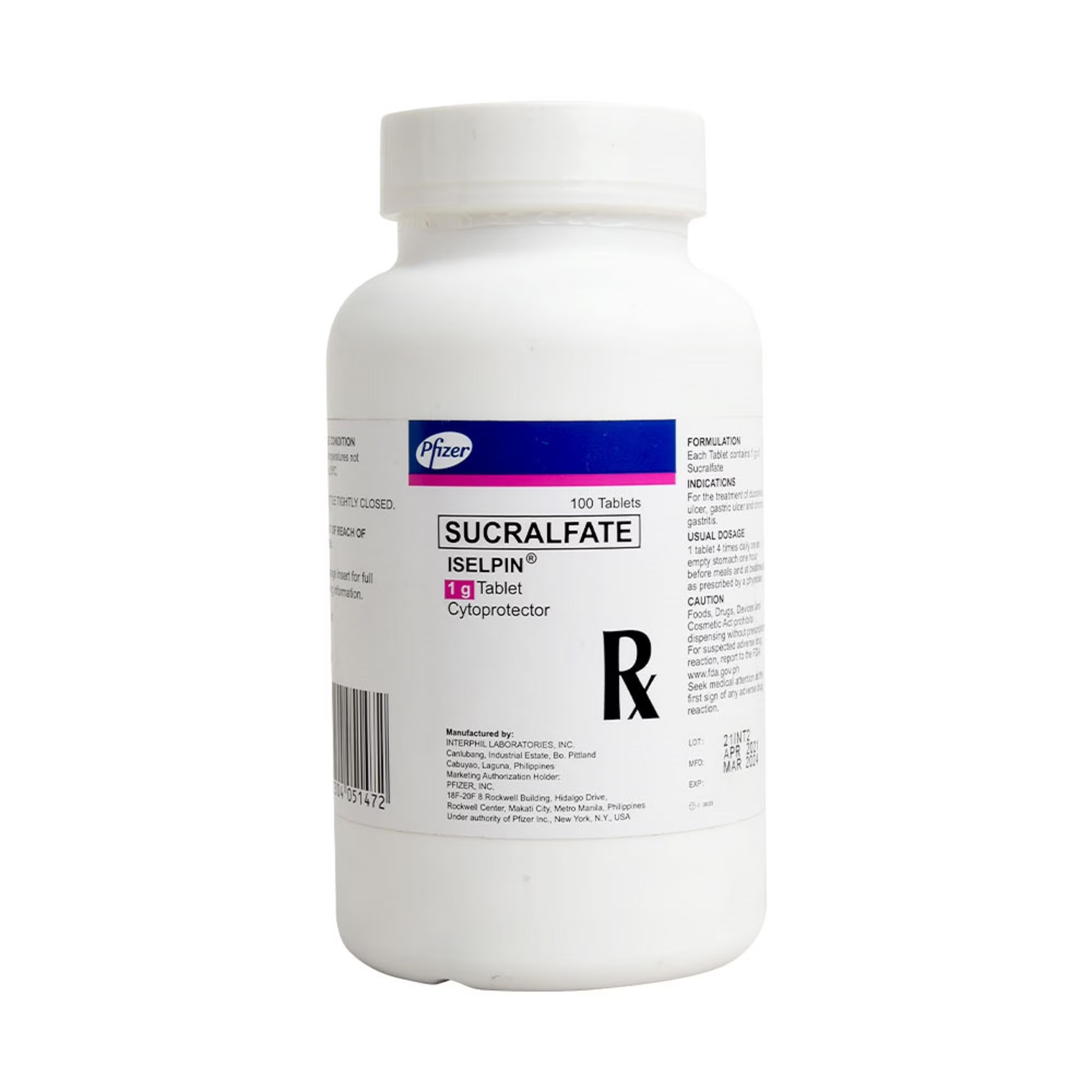
Sucralfate
Br120.00 Select options This product has multiple variants. The options may be chosen on the product page

